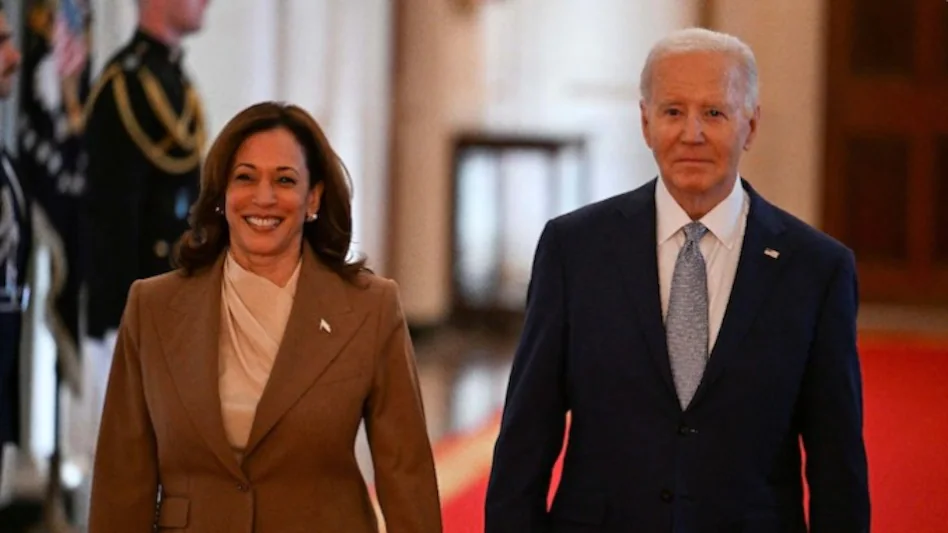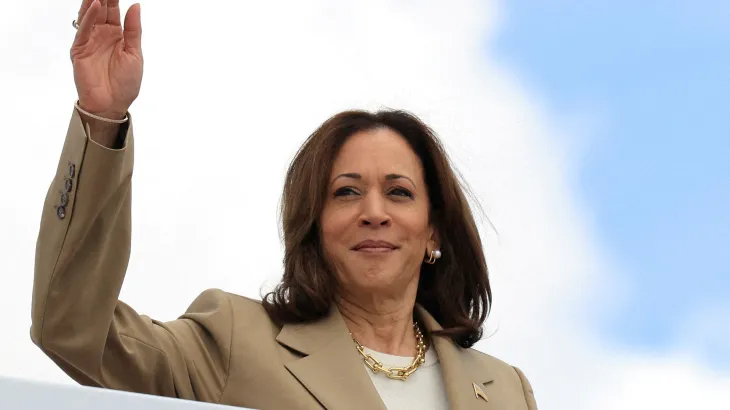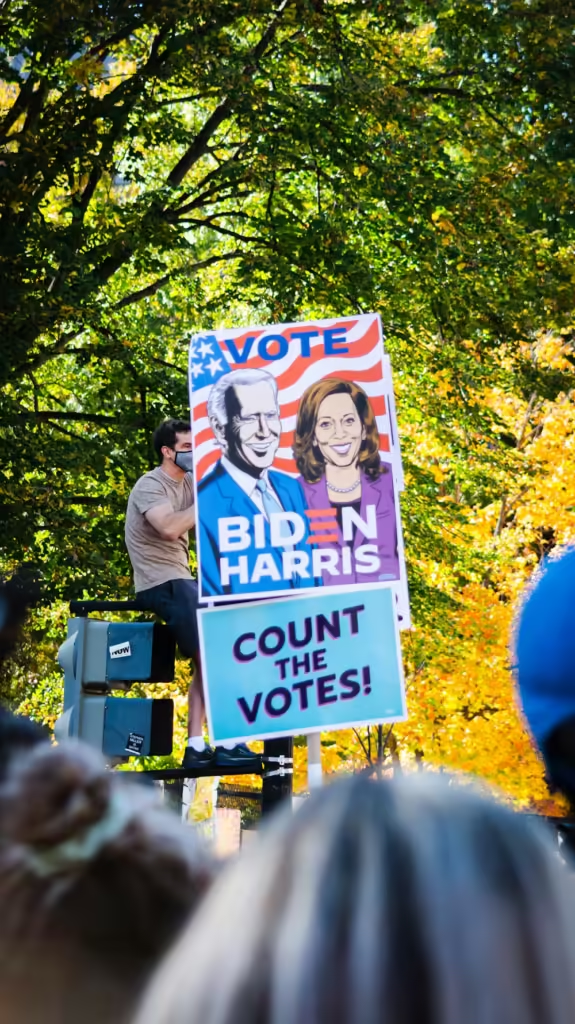The Good
- Historic Milestone: Kamala Harris clinching the majority of delegates and moving closer to the Democratic nomination is a significant milestone in American politics. As the first woman, first Black woman, and first person of South Asian descent to be on the verge of a major party’s presidential nomination, her potential nomination is a historic step towards greater diversity and representation in political leadership.
- Strong Party Unity: The swift consolidation of support from other Democratic candidates and party leaders showcases a united front within the Democratic Party. This unity can enhance the party’s strength and effectiveness in the upcoming general election, presenting a solid opposition to the Republican candidate, particularly Donald Trump.
- Increased Engagement and Donations: Harris’s candidacy has invigorated the Democratic base, leading to a significant influx of donations. The campaign raised $81 million in the first 24 hours, reflecting high enthusiasm and financial support from grassroots and major donors alike. This financial boost will be crucial for a robust campaign.
- Experienced Leadership: With Harris’s extensive political background, including her roles as Vice President and former Attorney General, she brings a wealth of experience to her campaign. This experience can reassure voters of her capability to handle the presidency’s challenges.
- Positive Momentum: The early support and endorsements from key Democratic figures, such as former President Barack Obama’s Attorney General Eric Holder and several Democratic governors, create positive momentum. This momentum can help her campaign build a strong foundation and maintain high energy levels.
- Focus on Critical Issues: Harris’s campaign is set to address significant issues such as civil rights, voting rights, and social justice. Her focus on these issues resonates with a wide array of voters who are concerned about the direction of the country and eager for progressive change.

The Bad
- Political Polarisation: Harris’s candidacy may further polarise the American electorate. Her firm stance against Donald Trump and his policies could deepen divisions between the two major parties, making bipartisan cooperation more challenging.
- Potential Backlash: There could be significant backlash from conservative voters and media outlets, portraying her as too liberal or unfit for the presidency. This could mobilize opposition and negatively impact her campaign.
- Delegates’ Pledged Support: While Harris has secured the backing of more than the required 1,976 delegates, this support is not binding until the delegates cast their votes. There remains a risk of shifts in delegate support, particularly if any controversies or campaign missteps occur before the formal voting.
- Internal Party Challenges: Although there is significant support within the Democratic Party, some factions may remain sceptical or resistant to her candidacy. Managing and uniting these different factions could be a continuous challenge for her campaign.
- Trump’s Counterattack: Donald Trump, known for his aggressive campaigning, is likely to mount a strong counterattack against Harris. His influence over a large and loyal voter base means he can generate substantial opposition, potentially impacting her chances in the general election.
- High Expectations: As a historic candidate, Harris faces exceptionally high expectations from various voter groups. Failing to meet these expectations could lead to disappointment and reduced support from key demographics, such as minority communities and progressive voters.
- Economic and Social Crises: Harris’s campaign will need to address ongoing economic and social crises, including inflation, healthcare, and racial inequality. These complex issues require comprehensive solutions, and any perceived inadequacy in her plans could be detrimental to her campaign.

The Gist
Vice President Kamala Harris has swiftly positioned herself as the presumptive Democratic nominee for the 2024 presidential election. On her first full day as a candidate, Harris received endorsements from remaining potential rivals and secured the necessary delegate support to clinch the nomination. With over 1,976 delegates pledged to her, Harris is poised to formally accept the nomination, marking a historic milestone as she stands to become the first woman, first Black woman, and first person of South Asian descent to lead a major party’s presidential ticket.
Harris has immediately turned her attention to the general election, focusing her campaign on combating the potential return of former President Donald Trump. Drawing on her background as a prosecutor, she has vowed to tackle Trump’s influence and prevent a rollback of civil rights achievements. The Democratic Party has shown strong unity, with key figures like former Attorney General Eric Holder joining her team, and numerous Democratic governors and former Speaker Nancy Pelosi endorsing her candidacy.
In the first 24 hours, Harris’s campaign raised an unprecedented $81 million, indicating significant enthusiasm and financial backing. As she prepares for the Democratic National Convention and selects a running mate, Harris’s campaign is set to address critical issues such as civil rights, social justice, and economic challenges, aiming to galvanise a broad coalition of voters.

The Take
Kamala Harris’s rapid ascent to securing the majority of delegates and positioning herself as the presumptive Democratic nominee for the 2024 presidential election is a historic and momentous development in American politics. This achievement not only underscores her significant support within the Democratic Party but also highlights the potential for a transformative leadership milestone. As the first woman, first Black woman, and first person of South Asian descent to potentially secure a major party’s presidential nomination, Harris’s candidacy represents a profound step towards greater diversity and representation in political leadership.
Harris’s campaign began with strong momentum, marked by the swift consolidation of support from other Democratic candidates and key party leaders. The endorsements from significant figures such as former Attorney General Eric Holder and Democratic governors like Andy Beshear, JB Pritzker, Wes Moore, and Gretchen Whitmer reflect a unified Democratic front. This unity is crucial in presenting a formidable opposition to the Republican candidate, particularly Donald Trump, who remains a polarising figure in American politics.
The enthusiastic financial support for Harris’s campaign is another testament to her broad appeal. Raising $81 million in the first 24 hours, with contributions from 888,000 unique donors, indicates a high level of engagement and commitment from both grassroots supporters and major donors. This financial influx will be instrumental in building a robust campaign infrastructure, ensuring effective outreach and mobilisation efforts.
Harris’s extensive political experience, including her tenure as Vice President and her previous role as California’s Attorney General, positions her as a capable and knowledgeable candidate. Her campaign has emphasised critical issues such as civil rights, voting rights, and social justice, resonating with voters concerned about the nation’s direction and eager for progressive change. By framing her campaign within the historical context of civil rights and suffrage movements, Harris appeals to a sense of continuity and progress, aiming to galvanise support from a diverse coalition of voters.
However, Harris’s candidacy also faces significant challenges. The polarised nature of American politics means that her strong stance against Donald Trump could further deepen divisions between the two major parties. Conservative voters and media outlets may launch aggressive campaigns against her, portraying her as too liberal or unfit for the presidency. This could mobilise opposition and create obstacles in her path to the White House.
The pledged support from delegates, while substantial, is not binding until the votes are cast. This introduces a level of uncertainty, as shifts in delegate support could occur if any controversies or campaign missteps arise. Additionally, managing the various factions within the Democratic Party and ensuring unified support throughout the campaign will require strategic leadership and effective communication.
Donald Trump’s anticipated counterattack poses another significant challenge. Known for his combative campaign style, Trump’s influence over a loyal voter base means he can generate substantial opposition to Harris. Her campaign will need to develop robust strategies to counter Trump’s rhetoric and maintain focus on her policy agenda and vision for the country.
Harris’s historic candidacy also comes with exceptionally high expectations from various voter groups. As a barrier-breaking candidate, she faces the pressure to deliver on the hopes and aspirations of minority communities and progressive voters. Any perceived inadequacy in addressing their concerns could lead to disappointment and reduced support, impacting her campaign’s overall effectiveness.
Furthermore, Harris’s campaign must address ongoing economic and social crises, including inflation, healthcare, and racial inequality. These complex issues require comprehensive and effective solutions. Any perceived shortcomings in her plans or failure to effectively communicate her policies could be detrimental to her campaign.
In conclusion, Kamala Harris’s candidacy for the 2024 presidential election represents a historic and transformative moment in American politics. Her rapid ascent to securing the majority of delegates and positioning herself as the presumptive Democratic nominee reflects strong support within the party and broad enthusiasm among voters. Harris’s campaign is set to address critical issues, focusing on civil rights, social justice, and economic challenges, aiming to build a diverse and inclusive coalition of supporters. While significant challenges lie ahead, including political polarisation, potential backlash, and the need to meet high expectations, Harris’s experienced leadership and historic candidacy present a compelling vision for the future of American leadership.




